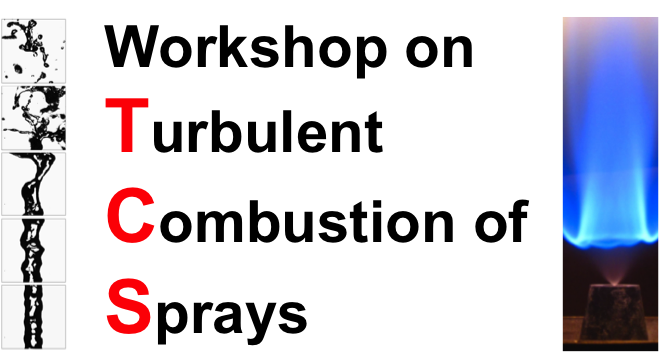ERCOFTAC Workshop SIG28

9th International Workshop on Turbulent Combustion of Sprays (TCS9)
1st June 2025
This is the day (Sunday) prior to the 13th Mediterranean Combustion Symposium.
The workshop is held at the same venue.
Location: Corfu, Greece
For frequent updates please also visit the homepage: http://tcs-workshop.org/
Programme:
In order to reach the objectives a program is set up with the following elements:
- Two keynote speakers, one more research oriented and one more application oriented (from industry)
- Discussion of joint comparative studies of numerical simulations of a number of target test cases for which extensive experimental databases are available.
Poster session enabling all participants to show their work in progress
Discussion sessions to identify essential topics needing further investigation
Organizing committee:
- Dr. Andrea Giusti (Imperial College, United Kingdom)
- Prof. Eva Gutheil (Heidelberg University, Germany)
- Prof. Assaad R. Masri (The University of Sydney, Australia)
- Prof. Epaminondas Mastorakos (University of Cambridge, United Kingdom)
- Prof. Bart Merci (Ghent University, Belgium)
- Prof. Hernán Olguín (Universidad Técnica Federico Santa María, Valparaíso, Chile)
- Prof. Venkat Raman (University of Michigan at Ann Arbor, USA)
- Prof. Dirk Roekaerts (Delft University of Technology, The Netherlands)
The Universities of Cambridge, Ghent, Rouen, Delft and Darmstadt are members of SIG28.
Objectives
The aim of this workshop series is to stimulate progress in the understanding of turbulent spray combustion by organizing focused discussions on open problems and promising new initiatives and collaborations in this area. A long-term objective is to advance capabilities to model turbulent spray flows, both reacting and non-reacting. In order to do so it links recent developments in studies of dispersed multiphase flow and combustion. The intention is to have interactive discussion between experts and young researchers and between modelers and experimentalists.
A 9th workshop will focus on ammonia as a perspective carbon-free fuel. The relatively poor combustion characteristics with respect to slow flame propagation and long ignition delay times as well as the high latent heat of vaporization make ammonia an interesting scope for the workshop. Currently the absence of accurate measurements and predictive models for atomization forms a bottleneck for this fuel with respect to the simulation of turbulent spray flames. Even though ammonia is carbon-free and provides an excellent perspective for carbon-free combustion, NOx and N2O formation are critical and have to be considered. Thus, the perspective of the TCS9 workshop is very challenging.
Databases and proceedings
In preparation of the workshop a special effort is made to collect and compile the best possible experimental datasets useful for model validation. The databases remain available for use afterwards and in a number of cases are suitable for inclusion in the ERCOFTAC wiki.
The proceedings reporting on results of this and previous workshops will be published as a special issue in Flow, Turbulence and Combustion (to be discussed with the editors).
